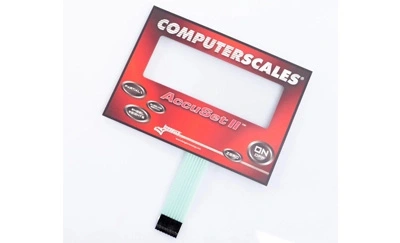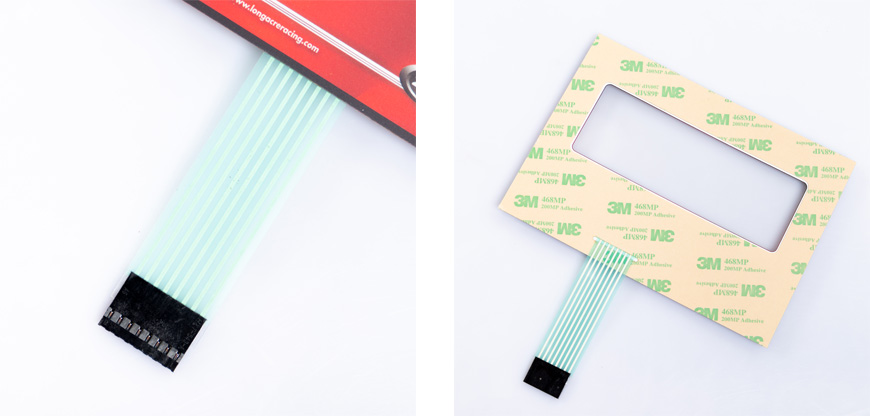
In today's digital age, where keyboards are essential tools for both personal and professional use, understanding the technology behind these input devices becomes increasingly important. Among the various types of keyboard technologies available, the keyboard membrane switch stands out as a widely used and versatile option. In this article, we will explore the intricacies of keyboard membrane switches, their advantages, applications, and the technology that makes them tick.

A keyboard type membrane switch is a type of keyboard technology that relies on a flexible, thin, and durable membrane to register keypresses. Unlike traditional mechanical keyboards, which use individual mechanical switches for each key, membrane switches are designed as a single, continuous membrane layer with printed circuitry. This membrane contains all the keys and is placed over a PCB (Printed Circuit Board).
How Does It Work?
The operation of a keyboard membrane switch is relatively straightforward. When you press a key, it causes the top layer of the membrane to make contact with the bottom layer, completing an electrical circuit. This connection registers a keystroke and sends the corresponding signal to the computer, which then displays the intended character or action on the screen.
1. Durability
One of the standout features of membrane switches is their durability. The flexible membrane can withstand millions of keystrokes without any significant wear and tear. This longevity is especially crucial for keyboards used in industrial settings or in environments where heavy typing is common.
2. Silent Operation
Unlike mechanical switches, membrane switches operate silently. This feature makes them an excellent choice for shared workspaces or environments where noise is a concern.
3. Cost-Effective
Membrane keyboards are generally more affordable than their mechanical counterparts, making them an attractive option for budget-conscious consumers.
4. Spill Resistance
The sealed design of membrane switches makes them resistant to spills and dust, which can extend their lifespan and keep them functioning optimally.
1. Consumer Electronics
You can find membrane switches in various consumer electronic devices, including TV remotes, microwave ovens, and home security systems. Their durability and cost-effectiveness make them an ideal choice for such applications.
2. Medical Devices
In the medical field, hygiene and durability are paramount. Membrane switches are used in medical equipment like diagnostic devices and patient monitoring systems due to their ease of cleaning and reliability.
3. Industrial Control Panels
Industrial settings often demand rugged input devices. Keyboard membrane switches are commonly used in control panels for machinery and equipment because they can withstand harsh conditions.
Membrane switches rely on printed conductive traces to function. These traces are made from materials like silver or copper, which have excellent conductivity. When a key is pressed, it bridges the gap between two conductive traces, completing the electrical circuit and registering the keystroke.
In conclusion, keyboard membrane switches are a vital component of various devices we encounter in our daily lives. Their durability, cost-effectiveness, and versatility make them a preferred choice for many applications. Whether you are typing on your computer, operating a medical device, or using a remote control, the chances are that you are interacting with a keyboard membrane switch.
Are membrane keyboards less responsive than mechanical keyboards?
No, membrane keyboards can be just as responsive as mechanical keyboards, with some models offering excellent tactile feedback.
Can I replace a membrane switch if it stops working?
Yes, membrane switches can be replaced, although it may require some technical expertise to do so.
Are membrane switches more prone to wear and tear over time?
While membrane switches are durable, they can eventually wear out after millions of keypresses, but this typically takes a long time.
Do membrane switches require special maintenance?
Not necessarily. Membrane switches are relatively low-maintenance, but keeping them clean can help prolong their lifespan.
Are there any limitations to the design of membrane keyboards?
Membrane keyboards may have limitations when it comes to custom keycap designs, as they are typically integrated into the membrane layer.